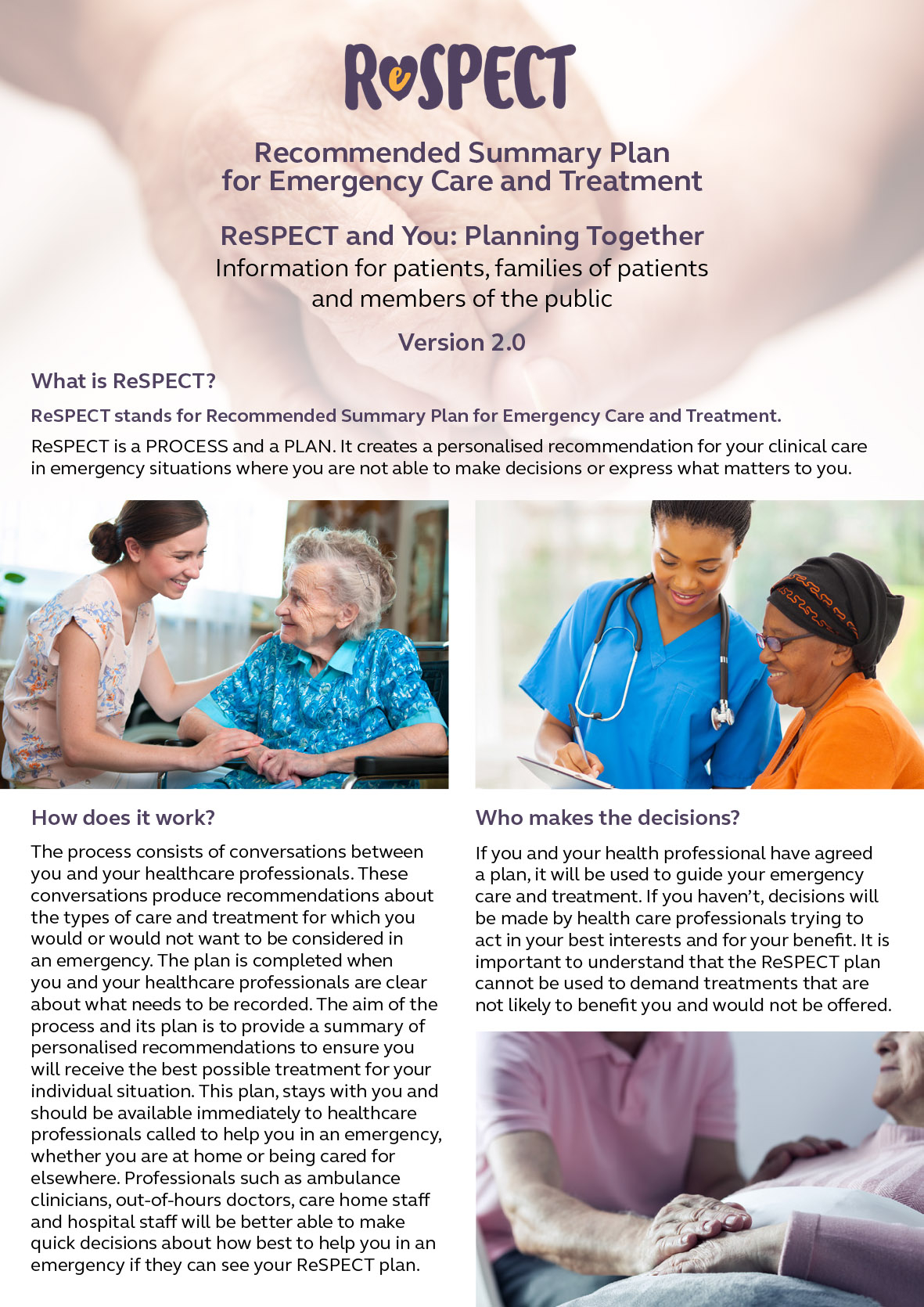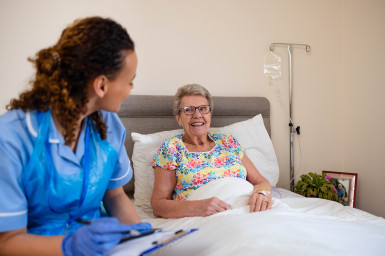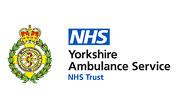The professionals involved in your care will depend on:
- Your medical condition
- What sort of care and support you need
- Where you are receiving the care and support
- Your current needs and wishes
If you have a complaint, concern, comment or compliment about the care you are receiving, you can share your feedback using the contact details below or speak to the healthcare professional providing your care.
Leeds Community Healthcare NHS Trust
Tel: 0113 220 8585
Email: lch.pet@nhs.net
GP Practice
You can contact the Practice Manager or contact NHS England on:
Tel: 0300 311 2233
Email: england.contactus@nhs.net
Care Home
You can contact the Care Home Manager or Leeds City Council if the care home is funded by them.
Tel: 0113 222 4405
Email: complaints@leeds.gov.uk
Yorkshire Ambulance Service
Phone: 0333 130 0549
Email: yas.patientrelations@nhs.net
Leeds Teaching Hospitals NHS Trust
Phone: 0113 206 6261
Textphone: 07468 753 025 (if you are D/deaf or speech impaired)
Email:patientexperience.leedsth@nhs.net
St Gemma’s Hospice
Phone: 0113 218 5500
Email: postmaster@st-gemma.co.uk
Sue Ryder Wheatfields Hospice
Phone: 0113 278 7249
Email: wheatfields@sueryder.org

If you’re living with a life limiting illness, good care and support is an important part of getting the most from your life. This leaflet provides information about the different services that are available in Leeds, what care might look like for you and what you can expect.
If you have been told that your health might not improve or you have a life limiting illness, you may be offered palliative care. The aim of palliative care is to maximise a person’s quality of life by treating and relieving the symptoms and side effects of their illness, along with providing emotional and practical support for the patient, their family and/or carers. Palliative care is individualised to a person’s needs, care preferences and what matters to them.
End of life care is the care provided for people who are approaching the end of their life, to help people live as well as possible and to die with dignity. For some people end of life care could be the last year of life and for others the last days, weeks or months. This can be difficult to predict as it depends on each individual and their condition.
Who provides palliative and end of life care?
The professionals involved in your care will depend on:
What can you expect from palliative care?
Palliative care should be:
 It’s important that you feel able to talk about your wishes and concerns with your healthcare team. Having open, honest conversations can help you get the best care. Think about what you want to say, and how you want to say it before the conversation.
It’s important that you feel able to talk about your wishes and concerns with your healthcare team. Having open, honest conversations can help you get the best care. Think about what you want to say, and how you want to say it before the conversation.
If you’re living with a life limiting illness, you may want to think about your future care and what is important to you. If you’d like information about how your condition may progress – to help you think about this – please speak to your healthcare team.
You might want to think about such things as the place where you’d like to be cared for. For example, being near family or friends and being in familiar surroundings might be important to you, as well as being free from pain or discomfort. It may not always be possible to provide the care you need in the place that you would like. Depending on your illness, your healthcare team may suggest different options, such as staying in your own home or moving to a care home or a family member or friend’s home. They may also suggest staying in hospital or a hospice.
Some people change their mind about where and how they’d like to be cared for if their needs change. For example, you might want to be cared for at home, but then decide you would be more comfortable in a hospice. If you change your mind, or want to discuss this again, let your healthcare team know. They’ll do their best to support you.
As part of planning for your future care, your healthcare team may talk to you about a ReSPECT (Recommended Summary Plan for Emergency Care and Treatment) plan. The purpose of a ReSPECT plan is to outline the agreed care and treatment recommendations for you should you be unable to communicate or make decisions for yourself. Having this plan in place helps ensure that you will receive the appropriate care and treatment that has been discussed and recommended for you, including recommendations about CPR (cardiopulmonary resuscitation). The ReSPECT Plan can be reviewed and updated if any changes are required. More information can be found here

The ability to make a decision is called ‘mental capacity’. If you lose mental capacity, other people can make decisions for you. There is legal guidance that must be followed to make sure they act in your best interests. If you are not able to make decisions for yourself, you may wish to name someone who should be involved in discussions about your care or appoint a Lasting Power of Attorney for your Health and Welfare. More information about the different options available can be found here.
You may need to have a needs assessment to find out what support can be offered. You can:
The assessment can also cover adjustments to your home to make things easier for you. For example, you may need grab rails or an adapted shower.
Leeds City Council Welfare Rights team may also be able to provide advice and support and answer queries. Call 0113 376 0452 or visit: leeds.gov.uk/benefits/welfare-rights
If someone is living with a life limiting illness and is thought to be approaching the end of their life a doctor may complete an SR1 medical report form. An SR1 form can be used to apply for a number of benefits under what are known as special rules. For further information visit: gov.uk/government/publications/dwp-factual-medical-reports-guidance-for-healthcare-professionals/the-special-rules-how-the-benefit-system-supports-people-nearing-the-end-of-life
You may also be entitled to a Personal Independence Payment (PIP). For more information visit gov.uk/pip/claiming-if-you-might-have-12-months-or-less-to-live
Whether you pay some of the cost depends on what services are available in your area. It can also depend on how much money or savings you have. Your needs assessment will determine how much you need to contribute to your care.
Depending on your needs you may qualify for NHS Continuing Healthcare.
NHS continuing healthcare is free healthcare provided by the NHS to individuals who have significant healthcare needs. Those eligible for NHS Continuing Healthcare will not require a financial assessment and no contribution is needed to meet assessed needs. If professionals agree you are approaching the end of your life and your condition is rapidly deteriorating, a Continuing Healthcare ‘Fast Track’ referral may be completed.
Leeds Health Case Management Service will support you with accessing the care you need. NHS continuing healthcare can be provided in a variety of settings outside hospital, such as in your own home or in a care home.
 To be eligible for NHS continuing healthcare, you must be over 18, have a Leeds GP and be assessed by a team of healthcare professionals. You should be fully involved in the assessment process and have your views about your needs and support taken into account. Carers and family members should also be consulted where appropriate to understand how they can help and support you. Your doctor or nurse can help you with the application process.
To be eligible for NHS continuing healthcare, you must be over 18, have a Leeds GP and be assessed by a team of healthcare professionals. You should be fully involved in the assessment process and have your views about your needs and support taken into account. Carers and family members should also be consulted where appropriate to understand how they can help and support you. Your doctor or nurse can help you with the application process.
Leeds Health Case Management Service explores how services can be personalised to you, promoting individual choice and individual control to suit your needs. They can also provide advice and guidance on other care packages such as community packages and independent home care providers.
It’s part of palliative care to support the person’s loved ones. They may ask the people important to you how they’re coping. They may also explain what support is available, now and in the future.
 If you have a partner, friend or family member who is looking after you, they can get a carer’s assessment. They will be given information about local services for carers including benefits, respite care (to care for you while they have a break from caring) and support groups.
If you have a partner, friend or family member who is looking after you, they can get a carer’s assessment. They will be given information about local services for carers including benefits, respite care (to care for you while they have a break from caring) and support groups.
At the assessment, the professional will ask questions to find out what effect caring is having on the person’s health and wellbeing. If the assessment finds they need support, the council or trust will provide it. For example, they might give the person training in how to provide care, or provide help with housework and transport.
More information can be found at carersleeds.org.uk
Health and care providers in Leeds are working together in partnership to make sure your care is well co-ordinated and meets your needs. Your care may include:
As your care needs change over time, your GP is often your first port of call to discuss your wishes for your future care. Your GP can co-ordinate your care needs and ensure you access the services you may need. They will work closely with other care providers to ensure flexible and continuous support for you and your carers. Your GP along with others in your care team will help with discussing your advance care planning wishes with you and your family and help with symptoms, practical, emotional and spiritual support.
Pharmacists are based in the community and can support you by giving out (dispensing) prescribed medication, answering any medication queries and working with the rest of your care team to help you get the right support.
Being cared for at home is an option that many people choose. The level of support people need often changes over time and the support provided can vary and be reviewed.
 Palliative and end of life care is provided to people in their homes by Leeds Community Healthcare’s Neighbourhood Services, over a 24 hour period depending on people’s level of need. The healthcare team works closely together and may include GPs, Specialist Palliative Care Teams, community nurse specialists, Health Case Managers and care agencies.
Palliative and end of life care is provided to people in their homes by Leeds Community Healthcare’s Neighbourhood Services, over a 24 hour period depending on people’s level of need. The healthcare team works closely together and may include GPs, Specialist Palliative Care Teams, community nurse specialists, Health Case Managers and care agencies.
If Leeds Community Healthcare Neighbourhood Services are involved in caring for you at home you will be given numbers to call our Neighbourhood Hubs or Neighbourhood Night Service if you need support. Keep these to hand and share them with people close to you if needed. If contacted a clinician in our Hub or Night Service can provide advice, signpost to another service or request a visit. If a visit is needed, a decision is made on the level or urgency and priority. Neighbourhood services do not provide emergency care, however, they will prioritise urgent care visits such as those for symptom relief.
If you are living in a residential care home the support and services involved in providing palliative and end of life care are similar to if you were living at home.
If living in a care home with nursing support is provided by registered nurses within the care home.
In both types of care home the healthcare team works closely together.
The Leeds Teaching Hospitals NHS Trust have staff trained to deliver palliative and end of life care across all wards. The Hospital Adult Specialist Palliative Care Team provides a seven day a week service, to support the care of patients in Leeds General Infirmary, St James’s University Hospital and Chapel Allerton Hospital. The team includes specialist doctors and nurses that can help with complex physical symptoms as well as psychological, social and/or spiritual needs.
In order to access the service you will need to be referred by your Doctor on the ward. Please speak to them for more information or visit: leedsth.nhs.uk/a-z-of-services/palliative-care/
A hospice is a specialist centre that cares for people with a life limiting illness and their families in a welcoming, comfortable environment. They are staffed by specialist healthcare professionals including nurses, doctors and therapists as well as people who can support you and your family and friends. They are often run by charities and other organisations and you do not have to pay to stay there.


 There are two hospices in Leeds, St Gemma’s in Moortown covering the East of the City and Sue Ryder Wheatfields in Headingley, covering the West of the City.
There are two hospices in Leeds, St Gemma’s in Moortown covering the East of the City and Sue Ryder Wheatfields in Headingley, covering the West of the City.
Both Leeds’ hospices provide palliative and end of life care for local people with life limiting illnesses. They specialise in symptom control to help people live as well as possible for as long as possible.
Care is offered to patients and their carers in a variety of settings: in the Hospice’s In-Patient Unit, in your own home supported by our hospice Community Teams and via Out-Patients facilities. Each GP practice and Neighbourhood Team, if involved, is linked to a hospice community team and staff work closely together to care for patients.
A wide range of support services are also available including physiotherapy, occupational therapy, complementary therapies and bereavement support. Bereavement support for children and young people is available at St Gemma’s hospice only.
The hospices welcome and provide care to everyone regardless of people’s age, gender, disability, race, religion or sexual orientation.
For more information visit:
st-gemma.co.uk
sueryder.org
 The Leeds Palliative Care Ambulance Service is operated by the Yorkshire Ambulance Service NHS Trust. The ambulance is used to transport patients with palliative care needs in Leeds, seven days a week between 9:00am and 7:00pm, including weekends and bank holidays. The ambulance has been designed for comfort and relaxation, with space for friends and family to travel with you.
The Leeds Palliative Care Ambulance Service is operated by the Yorkshire Ambulance Service NHS Trust. The ambulance is used to transport patients with palliative care needs in Leeds, seven days a week between 9:00am and 7:00pm, including weekends and bank holidays. The ambulance has been designed for comfort and relaxation, with space for friends and family to travel with you.
There are a range of services available in Leeds to support people through bereavement. More information can be found on our website at: leedspalliativecare.org.uk/helping-you/bereavement-support